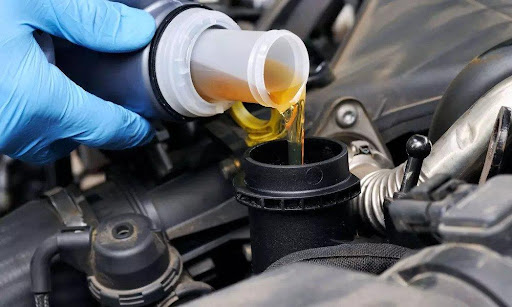It doesn’t matter what kind of vehicle you have since engine or motor oil is vital in keeping the engine working. It also ensures that your vehicle is in good condition.
Since not all engine oils have the same properties, it’s important that you know how to pick the one your car needs. Now, you might be wondering what would happen if you poured the wrong oil into your engine.
Continue reading to understand better how to get the right oil when do get the next oil change. What could happen if you choose the wrong one, and how can you deal with it?
What Engine Oil Does
Engine oil is a special lubricant for various engine parts. It reduces friction, ensures maximum performance, lessens corrosion, protects your vehicle from wear and tear, and absorbs heat.
Because of the many things engine oil can do, it can prolong your engine’s life, help you save money from repair costs, and lessen fuel use. But each engine has special features. That means you can’t use just any engine oil for it. Picking inappropriate motor oil can result in serious damage to your car.
The Type of Engine Oil Needed
There are certain things you have to check when you pick the right engine oil. Some of these are specifications, type of oil, and viscosity grade for your vehicle, standards, and driving environment.
It’s recommended to go through your vehicle’s manual and check the manufacturer’s recommendation if you’re unsure about the type of oil your car needs.
What Happens When You Pick the Wrong Engine Oil
The safest way to prevent choosing inappropriate engine oil is to use the one recommended in your vehicle owner’s manual. That’s because all types of engine oils are different. If you accidentally pour the wrong engine oil, here are some of the signs you might see right away:
Burning Oil Smell
When you start your engine, the smell is one of the first things you’ll notice. Engine oils have reduced viscosity grades when the weather is hot outside. This results in a thinner consistency and losing stability. When it’s not stable, it can’t lubricate the engine properly. As a result, there’s more friction in the parts, overheating of the engine, and emitting a burning odour.
Having Difficulty Starting the Car When It’s Cold
Engine oils with low viscosity are not good in hot weather, and engine oils with high viscosity are not good in cold weather. That’s because viscous oils become thicker in cold weather which stops the flow and prevents the engine from getting lubricated. You’ll find yourself having a hard time starting the engine, or you hear the noise in the engine when it starts working.
Leaking Oil
When you park, you might see oil leaking below if your car has high mileage and uses synthetic oil or an older model that utilises mineral engine oils. That’s because the flow of synthetic oil can get through tight areas such as gaskets and leaks.
Reduced Fuel Efficiency
When you use engine oil that’s of higher viscosity than what’s recommended for your vehicle, it can result in reduced fuel economy. Viscous oils make the moving parts of your engine, such as pistons, more resistant. So, your engine has to burn more fuel to reduce the resistance.
What to Do to Resolve This
Even though you can still drive your car with the wrong engine oil, you’re putting it and its parts at risk for damage if you continue doing so. As a result, it becomes less dependable and has a shorter lifespan. It’s best to visit the nearest oil change shop so they can make sure there is no further damage to the vehicle.
Conclusion
It is important to choose the correct engine oil to maximise your vehicle’s performance, make sure it works properly, and prolong its lifespan. What you need to remember is to follow the recommended oil by your car manufacturer and get a professional oil change shop to change the oil in your vehicle.


